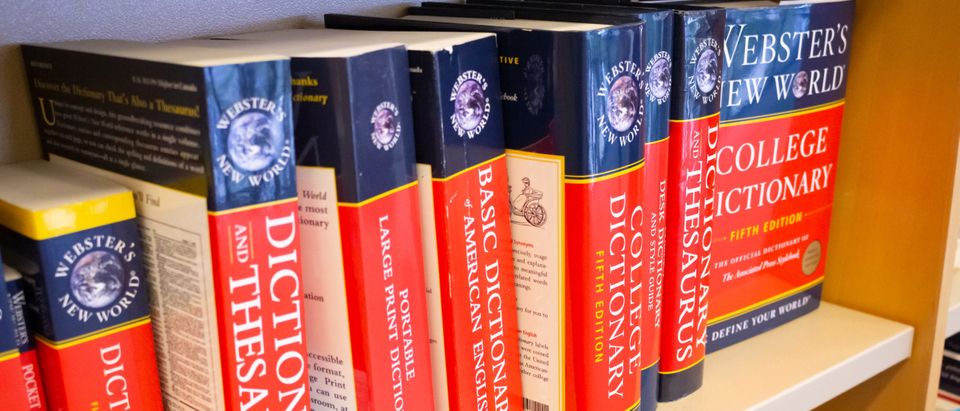Webster’s Dictionary quickly edited the definition of the word “preference” after it was declared by some as an “offensive” term to use when discussing sex.
The dictionary previously added in a definition for “preference” to include “orientation” and “sexual preference,” Steve Krakauer, the executive producer of Megyn Kelly’s podcast, tweeted.
After Supreme Court nominee Judge Amy Coney Barrett used the term “sexual preference” Tuesday during confirmation hearings, some, including Democratic Hawaii Sen. Mazie Hirono, claimed that the term is offensive – despite it being used widely. Barrett later apologized, saying she “honestly did not mean any offense or to make any statement by that.”
Shortly after, Webster’s Dictionary sprinted to edit the definition of “preference” in regards to the term “sexual preference,” this time declaring that it is “offensive,” archives of the website suggest.
As recently as last month, Webster’s Dictionary included a definition of “preference” as “orientation” or “sexual preference.” TODAY they changed it and added the word “offensive.”
Insane – I just checked through Wayback Machine and it’s real.
(via @ThorSvensonn & @chadfelixg) pic.twitter.com/oOq1SNtCP2
— Steve Krakauer (@SteveKrak) October 14, 2020
Webster Dictionary’s claim that the term is “offensive” comes despite many publications and people commonly using the term. Former Defense Secretary Leon Panetta wrote in 2018 that everyone is “created equal under God, regardless of our … sexual preference,” Krakauer noted.
“I really enjoy this CNN article headlined ‘What does ‘gender-fluid’ mean?’ which includes this line: ‘Being gender-fluid doesn’t determine a person’s sexual preference.’ Apparently what is considered offensive language, like gender, is fluid,” he added. (RELATED: Merriam-Webster To Change Definition Of ‘Racism’ After Request From Missouri Woman)
After Barrett’s use of the term, Slate published an article titled “Why Amy Coney Barrett’s Use Of ‘Sexual Preference’ Is So Alarming.” The publication has repeatedly used the term “sexual preference” in copy in the past, author and podcast host Matt Walsh pointed out.
“The archaic expression is an anti-gay dog whistle to the religious right,” the Slate article claimed.
“sexual preference”
“Your source for LGBTQ+ news, since 1967.”
Though to be fair, this was 19 days ago. A lot has changed. https://t.co/K5271xvigY
— JERRY DUNLEAVY (@JerryDunleavy) October 14, 2020
The Advocate, which describes itself as “your source for LGBTQ+ news, since 1967,” has also published the term “sexual preference,” Washington Examiner’s Jerry Dunleavy tweeted.
“Though to be fair, this was 19 days ago. A lot has changed,” he quipped.
Merriam-Webster did not immediately respond to a request for comment from the Daily Caller.


